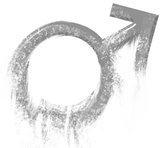 by Suzanne Fields –
by Suzanne Fields –
Cultural forces are driving men away from traditional responsibilities
These are difficult and perilous times for boys. A distorted culture has robbed them of virtue against which to measure themselves. The good once associated with masculinity in a patriarchal society has been tossed out with the bad. This, alas, is the era of feminist ascendency.
Manhood is more easily mocked, satirized and derided, or exposed for its villainy, exploitation and criminality than held up as an ideal for boys to aspire to. We’ve always had rogues, rascals and villains, but until now, we’ve also had a base line, a common denominator, of what it means to be a man. Male-female cultural distinctions, once blurred, are disappearing.
That was a touching moment when Gloria Cain, in defense of her husband, told Greta Van Susteren of Fox News that the harassment accusations against him couldn’t be true because he was a man of “old-school manners,” like walking next to the curb when he strolled down the sidewalk with her. Such considerations never made the man, but they were reminders that men were cheerfully expected to protect women.
In the previous century, a man didn’t have to be a John Wayne hero to be appreciated. His identity was less about the kind of work he did than the fact that he worked. That single fact has been repealed by the accumulation of cultural changes that do not serve men – or women – well. Fewer men than women are finishing high school and obtaining undergraduate or professional degrees. Men are entering the workforce much later. They’re often dependent on government or family for sustenance. The recession makes things worse.
This confuses children. In a world dominated by media images, the flashy figures of sport and entertainment exert a disproportionate influence on the ambitions and aspirations of the young. The rich and famous become shallow idols, worshipped for their shortcuts in the pursuit of happiness, which usually lead only to the illusion of a pot of gold at the end of a vanishing rainbow.
This bothers William Bennett, former head of the National Endowment for the Humanities, secretary of education and drug czar in the Reagan administration and drug czar for George H. W. Bush. He’s a prophet exiled from the Old Testament, marking the decline of civilization. His first book, “The Book of Virtues,” a collection of moral tales, was an overnight best-seller to readers hungry for the literary gems that once had been a staple of the culture. His new book, “The Book of Man,” is an anthology of literary forces riding to the rescue of a culture in a “crisis of manliness.”
In the 1950s, Mr. Bennett reminds us, 96 percent of boys and men between 15 and 54 worked at real jobs. That number has dropped to 80 percent. The New Yorker magazine captured the essence of the “Boomerang Generation” with a cover depicting a young man hanging his doctorate on the wall of his childhood bedroom, with dismay on the faces of his parents, stuck with an unwanted roomer.
There are fewer entry-level jobs in an information-based society, which delays the assumption of responsibility. The result for men from deprived backgrounds is catastrophic. Statistics reflect the woe of young black women who are substantially more educated and economically better off than young black men, which makes their marriage prospects slim. (In one study, 1 in 5 black men born between 1975 and 1979 had been in prison before reaching the age of 34.)
What boys – and men – do better than girls and women is playing video games. It’s hardly surprising that the most popular first-person shooter games that once drew on heroics from World War II now depict violent fantasies set in the immediate future without an authentic historical context. One of the games appeals to the “soldier in all of us.” But the conflicts depicted on games require neither conceptual nor moral thinking about real conflicts. It’s forever playtime.
“Why are there so many boys and men who are irresponsible, unmotivated, unchivalrous, selfish, lazy?” Mr. Bennett asks. “Why do so many boys and men spend so much time in pointless and soulless activities inconsiderate of others, absorbed in self or mindless technology?”
He doesn’t answer the question, but he gives cause for reflection in one volume with examples of men at work and play, governing, soldiering, praying, demonstrating responsibility for families. The men in the stories are not merely slouching toward technology. Times have changed, he argues, but the need for virtue and character in men has not. That’s a tough sell.



